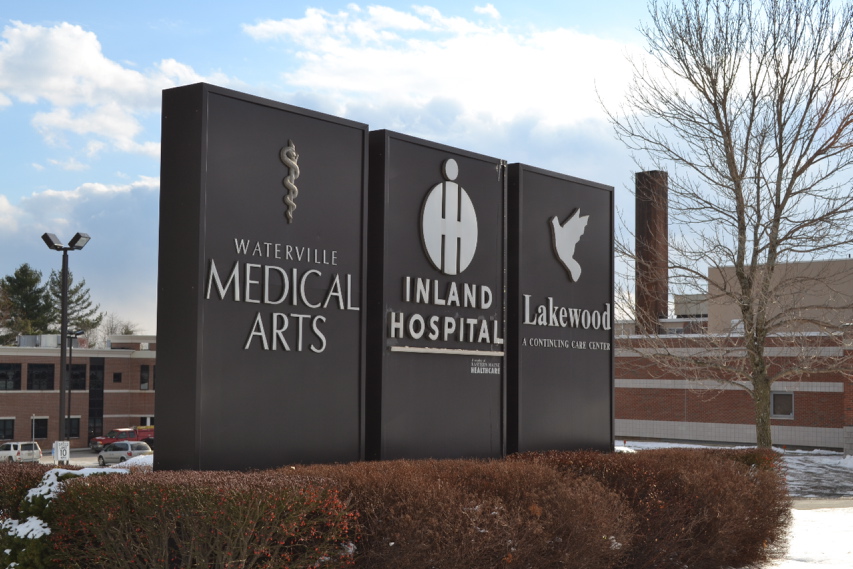AUGUSTA — Kennebec County’s two hospitals are among six statewide that could be penalized later this year for high rates of infections and complications among patients on Medicare, the federal government’s health care program for senior citizens.
MaineGeneral Medical Center in Augusta and Inland Hospital in Waterville may be targeted under the Hospital-Acquired Condition Reduction Program, which examines rates of infections from catheters in Medicare patients in intensive care units, along with rates of surgery-related injuries.
But officials at the hospitals said they have taken steps to reduce issues identified by the federal Centers for Medicare & Medicaid Services, whose rankings can hinge on small data samples.
For example, Dr. Robert Thompson, chief medical officer for Eastern Maine Healthcare Systems, which runs Inland and seven other Maine hospitals, said there were three catheter-related infections at the hospital in 2012 and 2013 combined.
At a small hospital such as Inland, a difference of one or two infections “can send you to the top or the bottom,” Thompson said.
Nationwide, Medicare has identified 761 hospitals that could lose 1 percent of federal funding starting in October under the program, according to Kaiser Health News.
Together, those hospitals are expected to lose $330 million. Hospitals targeted for penalties scored higher than 7 on a 1-10 scale, calculated using catheter-related infection data and rates of surgery-related injuries, including blood clots, bed sores and falls.
In Maine, two hospitals are most likely to face penalties, according to Kaiser: Maine Medical Center in Portland (10), and St. Mary’s Regional Medical Center in Lewiston (9.025).
But four more hospitals are also at risk, including MaineGeneral (8.375) and Inland (8). Two other hospitals run by Eastern Maine Healthcare Systems — Mercy Hospital in Portland (8) and Eastern Maine Medical Center in Bangor (7.35) — could also lose funding.
However, all scores could change by September. These early scores were calculated using only one year of data, while final scores will be based on two years of information.
It’s unknown what the penalties would be at local hospitals. Thompson said it would likely be “in the tens of thousands of dollars” at Inland, while Lisa Simm, administrative director of quality care management at MaineGeneral, said she couldn’t estimate it.
This is the third part of a government effort to reduce costs and improve health care, after recent programs that penalized hospitals for high readmission rates and lower quality measurements. When all penalties go into effect this fall, up to 5.5 percent of Medicare payments could be on the chopping block at the worst performing hospitals, according to Kaiser.
At MaineGeneral, Simm said officials have started to make reductions in urinary tract infections from catheters, which she said was the government measurement where the hospital has “the most to gain.”
But it has started gaining, Simm said. In 2013, the hospital had two such infections per month, half its rate in 2011. MaineGeneral’s 2014 rate is trending down from last year, after she said the hospital has prioritized removing catheters in patients earlier than before.
The hospital’s new north Augusta location has improved safety and officials there have also committed to doing root-cause analyses of all future incidents measured by government, Simm said, with a goal “to get down to zero on all of these measures.”
Thompson said his system’s hospitals are constantly reviewing their standing. While they “don’t see a pattern of anything we’re doing wrong,” he said the system takes all infections seriously and wants to eliminate them.
Kathy Day, a patient safety advocate and nurse from Bangor whose father died in a hospital-acquired infection in 2009, said hospitals should, because “when there’s one person that dies or suffers from an infection, that’s one too many,” she said.
While Day thinks the federal government’s plan could be broader, it emphasizes the right things. She said infections can be costly medically and financially for patients, and hospitals should share in the pain.
“It’s time that the hospitals get hit on the bottom line and I think this will motivate them, I really do,” she said.
Michael Shepherd — 370-7652
Twitter: @mikeshepherdme
Send questions/comments to the editors.



